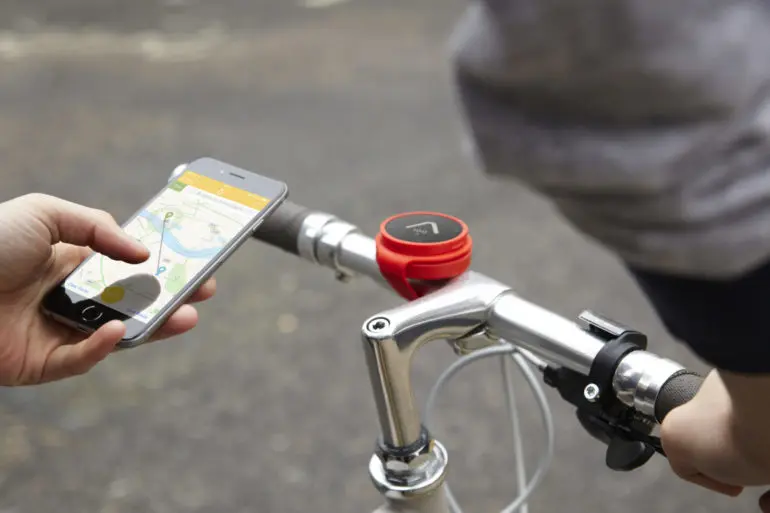London based cycling tech startup, Beeline, launches a fourth crowdfunding campaign to focus on the cycling community, and fuel growth.
Beeline, the connected navigation device, has launched a fourth crowdfunding campaign, with an emphasis on community. Started by founders Tom Putnam and Mark Jenner in mid 2015 when the two friends were fed up of getting lost on their bikes, the device simply gives the user the general direction in which to head, rather than prescribing exact routes.
Community and the creation of an ecosystem through cycling is the focus of the next campaign. Through group rides from London to the Suffolk coast, and various routes across the city, the device has already created a society of Beeliners who share journeys and photos through the Beeline blog and social media platforms – Blog; Instagram; Facebook; Twitter.
Putnam says, “Community is at the core of everything we do. It’s only through the Kickstarter community that we were able to start and it’s where we want to take the product in future. To not just make gadgets, but create a whole ecosystem where people can help each other have great journeys, inspiring each other with ideas and sharing their experiences. To do that, we need people to be really engaged, so the more we can invite them into our story the better.”
Today Beeline’s story continues with their fourth crowdfunding raise; with a target of £100,000 through Seedrs in return for equity, where the funds will be used to fuel their expansion, particularly their distribution internationally. The device is already stocked on Amazon, Harrods, Evans Cycles, Halfords, Wiggle and Firebox.
Crowdfunding has risen in popularity in recent years, with high profile businesses such as Scottish Brewdog famously being built on the backing of community. As with any startup investing, it does of course carry risks.
Jenner says, “The nature of startup investments is that they have the potential to provide very high returns, but the flip side of that is they are also very risky. This isn’t a feature of crowdfunding but the asset class. To suggest that normal individuals shouldn’t be exposed to this is a little patronising. This would put us back in a position where only those with vast reserves of capital can enjoy the potential upside – exactly what crowdfunding has served to democratise. People absolutely need to go into startup investments with their eyes open and aware to the risks, but as long as they do, I think this is a very positive shift.”
Such risk-taking in the first place through crowdfunding campaigns saw the start of Beeline’s journey.
Putnam says, “At the very start it was just the two of us, learning how to code and dusting off design skills from a half-forgotten engineering course. We quickly realised we’d need outside help if we were to progress quickly.”
They ran a private fundraising campaign through Seedrs, inviting close friends and family to invest in the idea. This gave them the £60,000 they needed to work with industrial design agency Map Project Office, allowing them to launch on Kickstarter in November 2015.
Kickstarter was their second Crowdfunding campaign; this time giving backers first access to the product, rather than equity in the business. They hit their £60,000 target in three days and went on to raise £150,000 from over 3000 backers. This put them in the all-time top 0.2% of Kickstarter projects.
Kickstarter was their second Crowdfunding campaign; this time giving backers first access to the product, rather than equity in the business. They hit their £60,000 target in three days and went on to raise £150,000 from over 3000 backers. This put them in the all-time top 0.2% of Kickstarter projects.
Jenner says, “Kickstarter is an incredible community and resource, without which, so many innovative new products coming onto the market these days simply couldn’t exist. Not only does it give you the capital required to bring a product to market, it validates or invalidates your idea, telling you whether there is demand, before you commit years of your life to a project.”
The success on Kickstarter peaked the interest of London’s VC community, allowing them to raise £500,000 in the summer of 2016, with major investments coming from the likes of Seedcamp, Earlymarket, TrueStart and the Mayor of London’s London Co-Investment Fund.
However, Putnam and Jenner actively chose to set aside approximately a third of the round for crowdfunding once more, citing their emphasis on a wider cycling community.


